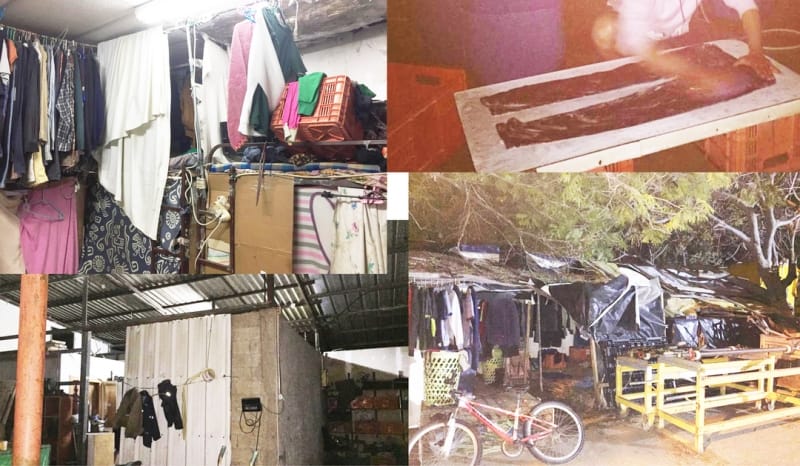Last Friday we went south for a field visit with Thai agricultural workers. Dozens of men and three women live in two adjacent farms, crowded like sardines. They sleep under a crumbling asbestos-filled roof, and under a constant leak that reminds them that winter is here. Privacy is obtained through towels and blankets hanging by the mattresses, and the clothes are washed by hand because one of the farms does not have a washing machine and one machine serves 40 workers. Here, we also found improvised huts built by the workers themselves – exposed to the weather. These individuals, who work 10 hours a day, come back to this every night.
The BBC investigation, which was broadcast two months ago, provided a glimpse into this this reality. Which was quickly followed by a wave of denials, insults and promises from employers and government offices that everything is fine – that in Israel, migrant workers are treated well. At the same time, testimonies to the contrary from the workers continue to come in, the unexplained deaths accumulate, and frustration grows in the face of widespread acceptance of this reality. These individuals have left their families and traveled overseas to work hard and earn a living. This can not be the “good treatment” Israelis farmers and authorities keep referring to.


